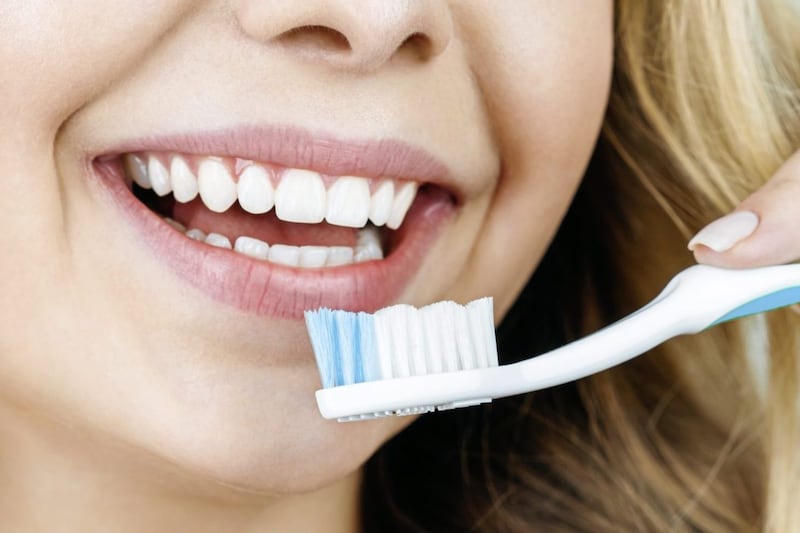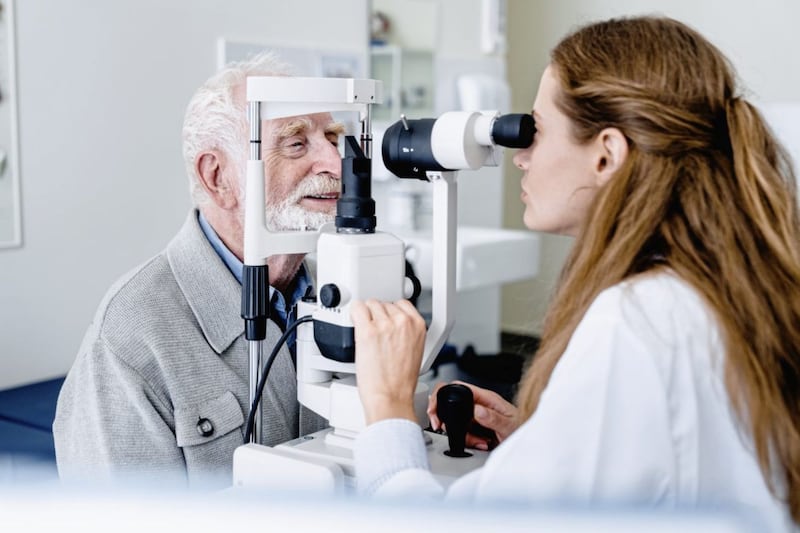SURVEY after survey shows that dementia is the disease we fear more than any other, even cancer.
Dementia is an umbrella term for several brain diseases that affect memory, thinking and cognition.
Work is being done on new medications - a drug called aducanumab has just been given the go-ahead by regulatory authorities in the United States, for example - but this is not the sole focus of research, with scientists also concentrating on what can be done to reduce the risk of developing dementia.
The Lancet Consortium on Dementia Prevention, published last year, concluded that 40 per cent of dementia cases could be prevented or delayed by targeting 12 modifiable risk factors, including obesity, type 2 diabetes, physical inactivity, excess alcohol intake and smoking.
In addition to the usual lifestyle factors that we're all advised to address, what steps do top dementia experts themselves take to ward off the disease?

IN BED BY 10PM
Dr Ian Harrison, a senior research fellow at the Centre for Advanced Biomedical Imaging at University College London, who specialises in brain imaging, says: "When it comes to lowering my own dementia risk, I swear by a good night's sleep.
"I used to go to bed later, but for the past three years I've been strict about going to bed at 10pm every day, even at weekends.
"The time I wake up depends on my children, aged one and three, but I set my bedtime early to give my brain the best chance to rest and have a clear-out during the night.
"The brain has a cleaning system, called the glymphatic system, which removes a build-up proteins and waste products.
"We know from studies that the glymphatic system is 70 per cent more active when we sleep. If there is an impairment in the system due to lack of sleep, then this may lead to a build-up of proteins, including amyloid.
"Anecdotally, we all know that we have a fuzzy head if we have a bad night's sleep: this may be due to the glymphatic system not clearing out all the waste products."

LOOK AFTER YOUR TEETH
Chris Fox, a professor of clinical psychiatry at the University of East Anglia Medical School, and a consultant old age psychiatrist, says: "As well as looking after my health generally, I take good care of my teeth to reduce the risk of dementia.
"I use mints containing xylitol [an artificial sweetener] to keep the microbiome, the community of bacteria in the mouth, healthy.
"This not only reduces dental cavities but xylitol actually gets rid of nasty bacteria, too. There is emerging evidence that it creates a healthier oral microbiome.
"One study from Bristol found the same bugs that can cause problems in the mouth were found in post-mortem brains of people who died from Alzheimer's."
One suggestion is that oral health may be linked to dementia as the bacteria may trigger inflammation in the brain.
The thinking is that porphyromonas gingivalis, the bacterium in the mouth that causes gum disease, crosses the blood brain barrier - a protective boundary between the bloodstream and the brain.
This can potentially alter brain cells, contributing to dementia, explains Karl Herholz, a professor in clinical neuroscience at Manchester University.
"We know the disease begins around 20 to 30 years before symptoms become apparent, so it makes sense to have good oral health by brushing and visiting your dentist regularly, which I ensure I do to protect myself against dementia," he says.

AVOID WALKING BESIDE BUSY ROADS
Dr Tom Russ, a consultant old age psychiatrist, director of the Alzheimer's Scotland Dementia Research Centre, at the University of Edinburgh, says: "I make a conscious effort to avoid walking along main roads and find back street routes where possible."
Air pollution was added to the list of modifiable factors to reduce dementia by the Lancet Commission in 2020.
This follows studies, including one in Canada of 6.6 million people, that have shown living on a main road is associated with a higher risk of dementia.

HAVE AN EYE TEST EVERY YEAR
It's now well-established that hearing loss - specifically, hearing loss when you don't wear hearing aids if you need them - is a leading preventable cause of dementia, and addressing it could reduce the risk by 8 per cent, according to the Lancet Commission on Dementia Prevention.
Mild hearing loss doubled dementia risk, moderate hearing loss tripled it and severe hearing loss increased the risk by five times.
The theory is that not being able to hear well and the lack of social stimulation that follows is associated with a higher risk of brain shrinkage and damage.
But while it's no surprise to learn that regular hearing tests - and wearing hearing aids when you need them - are key, Dr Emer MacSweeney, a former NHS consultant neuroradiologist and founder of Re:Cognition Health brain clinics, says it is also important to have your eyes checked.
"The less well we hear - or lip read, which is key for our understanding of what's being said - the less opportunity there is to have meaningful conversations that can stimulate the brain," she says.
"It's why I make sure I have an eye test at least once a year. And if you think you might need glasses, you should see your optician."

DON'T ADD SALT WHEN COOKING
Dr Sarah-Naomi James, a dementia research fellow at University College London, says: "Dementia doesn't just happen in old age, it starts decades before.
"We now know that there is an association between high blood pressure [around 140/90 from midlife, roughly between the age of 40 and 50] and developing dementia.
"I'm in my early 30s but I look after my physical health and I'm particularly careful about checking salt levels on packets. And I don't add salt to food, either.
"Blood pressure tends to rise with age, but there is something about what happens in mid-life that seems to be particularly important, although we don't know what the mechanism is yet. One theory, though, is the pulsating pressure damages the brain."

DELIBERATELY USE YOUR 'WRONG' HAND
Another step Dr MacSweeney takes is to try to put pressure on her brain by using her non-dominant hand for some tasks.
"As well as making sure I brush my teeth and use interdental brushes [to protect against mouth bacteria linked to dementia], I swap hands when using my toothbrush," she says.
"Using the non-dominant hand can provide an additional workout for the brain."
Similarly, she "supercharges" her exercise regimen. "It's well-recognised that exercise plays a role in helping reduce the risk of Alzheimer's, with a 2019 study finding that aerobic exercise may specifically help combat changes in the brain associated with dementia," she says.
"But research also tells us that you'll get an even greater boost if you do a form of exercise that say, unlike jogging, makes you have to think about what you're doing.
"So as well as running, I do HIIT - high-intensity interval training - four to five times a week.
"This involves short bursts of exercise, with lots of instructions to follow. This mental effort can play a part in reducing your risk - which is why I also do yoga, which requires concentration."

TRY TO SPEAK AND READ FRENCH
Carol Brayne, a professor of public health at the University of Cambridge, says: "Studies have shown that factors such as social engagement, intellectual engagement, having a complex occupation and higher education are associated with a lower risk of dementia, although they don't eradicate it completely.
"Our brains change quite a bit as we age, in the ways they are wired, and I think at the highest level our brains are meant to be stimulated.
"We know that from child development: if you don't stimulate a child, their brain won't develop.
"My message would be that you need to do things you enjoy, though. Enrich your life by taking up activities that you like and can become better at, at any life stage.
"On a personal note, I enjoy trying to sustain my French language skills through reading and speaking whenever I can."

CUT DOWN ON ALCOHOL
Professor Paul Matthews, a director of the UK Dementia Research Institute and head of the Department of Brain Sciences in the Faculty of Medicine at Imperial College London, says: "We've recently done a study that shows that there is an association between drinking alcohol and higher rates of brain volume loss.
"In adults, the brain begins to lose half a teaspoon of its size [about 0.3 per cent of its volume] every year, and on average drinking two small glasses of wine a day doubles the rate of volume loss.
"I have certainly reconsidered my own alcohol consumption since completing this study, and I've cut back to between seven and 10 units a week, down from 14."
alzheimersresearchuk.org
© Daily Mail






